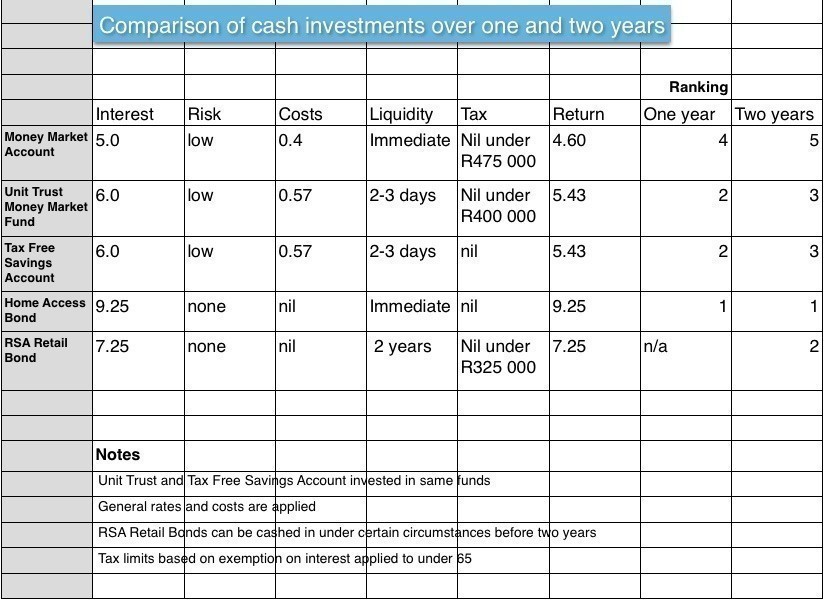The inflation rate is a measurement of the average cost of items which is closely monitored by the Department of Stats. The price movements of around 400 items are measured to establish the annualised inflation rate. The rate is watched closely by the Reserve Bank which is mandated to keep it in a range of 3% to 6%. One of their mechanisms used is the adjustment of the interest rate to either stimulate or contain the economy.
Monthly Archives: April 2015
Your Home Access Bond still a great deal…
When deciding upon an investment the main aspects to consider are:
Risk – the possibility of losing capital.
Return – the yield of the investment over time. This could be interest from cash deposits or bonds, rental income from property or dividends from shares.
Liquidity – how freely are the funds accessible
Costs – the charges applied to the investment. Mainly the fund manager, the administrator and the advisor.
Tax – taxes applied to the returns as well as capital gains tax when you sell the investment.
The following comparison includes the common investment options available based on general returns and costs and clearly shows that the home access bond is a great place to save your cash in the short term.
The value is found in saving the interest applied to your monthly bond instalment. The bank rules off at the end of each month and applies interest to the average balance in the month. By having a higher balance through your extra savings the interest applied for the month is lower and so the rest of the instalment pays off more of the capital owed. The effective rate saved is the rate of interest that the bank charges you. In the comparison, the current prime lending rate is applied.
Where else can you get 9.25% interest, guaranteed, no costs, no tax and immediately available?

